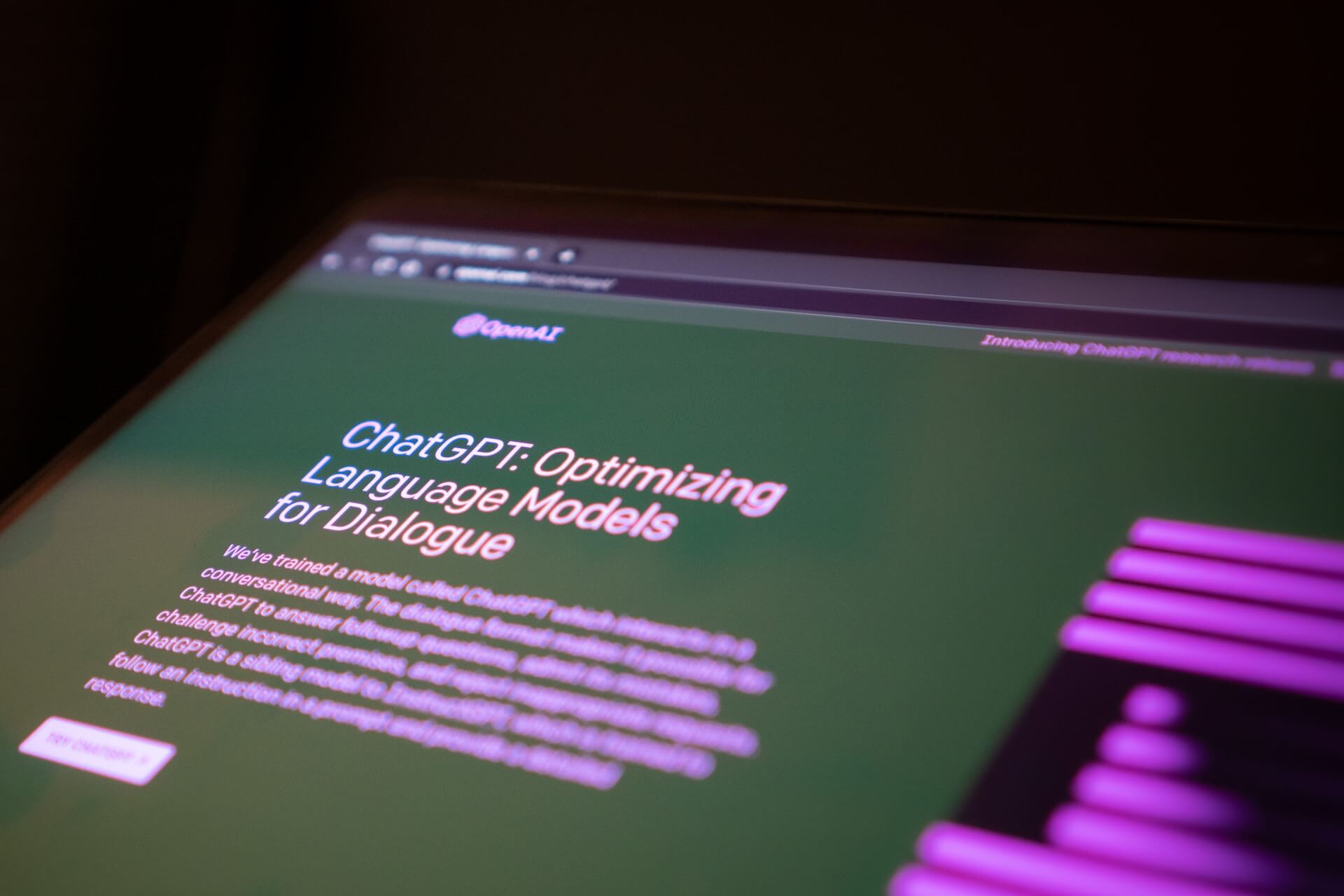Cyber Insurance & AI: Are You Fully Covered and Secure?
In today’s fast-evolving landscape, generative artificial intelligence (GenAI) is transforming nearly every industry, including insurance. From underwriting and claims processing to customer engagement, AI's integration brings a wealth of new opportunities—as well as complex risks that businesses must navigate. At Compass, we recognize these challenges and are committed to helping you evaluate and strengthen your AI-related security measures.
How Insurance Policies Can Protect Against AI Risks
For businesses leveraging AI, it’s crucial to determine whether their current insurance policies adequately cover potential AI-related risks. Here’s a breakdown of how traditional insurance policies can address claims stemming from AI use, and how our firm can assist you in mitigating your security risks:
- Commercial General Liability (CGL): CGL policies typically provide coverage for third-party liabilities involving bodily injury, property damage, or personal and advertising injury. When it comes to AI, CGL policies may protect against claims such as copyright infringement, trade dress violations, or the misappropriation of advertising ideas when these arise from GenAI output.
- Directors and Officers (D&O): D&O policies cover claims against directors and officers for decisions made in their corporate roles. AI risks could involve claims of "AI washing," shareholder actions related to data privacy, or employment-related issues stemming from AI deployment.
- Errors and Omissions (E&O): E&O insurance protects professionals from claims arising out of their services. For example, if a financial firm relies on AI to manage client portfolios and errors occur due to improper algorithms, an E&O policy might cover resulting claims.
- Employment Practices Liability Insurance (EPLI): EPLI policies cover claims related to employment practices such as discrimination, harassment, and wrongful termination. AI-driven hiring tools, if improperly calibrated, can inadvertently introduce bias, leading to claims that an EPLI policy may cover.
- Cyber Insurance: Cyber policies generally provide coverage for data breaches, privacy concerns, and incident response costs. These policies could cover AI-specific risks such as hacking of AI systems, "data poisoning," or privacy violations. Given the variance in cyber policy language, work with your Cyber insurer to analyze your coverage and identify any gaps that need to be addressed.
- Property Insurance: Property policies protect physical assets, but when AI manipulation leads to physical damage, such as tampering with industrial systems, coverage may extend to this as well. Cyber insurers should be able to assist in evaluating whether your property policies sufficiently protect your AI infrastructure. Businesses may also benefit from P&C insurance software to efficiently manage claims and ensure seamless policy administration.
Key Considerations for AI-Related Insurance Coverage
Policyholders must carefully review exclusions and limitations that could affect AI-related claims, such as:
- Exclusions for electronic data, cyber events, or AI-specific risks.
- New regulations, such as Colorado’s 2026 legislation on “algorithmic discrimination,” which may impact coverage.
Potential AI-Related Impacts and Risks
The use of AI introduces significant cyber risks that can impact the confidentiality, integrity, and availability of data and systems. Effective protection of critical assets relies on a comprehensive approach that encompasses people, processes, and technology. It's essential to understand and mitigate critical risks associated with AI, including:
- Business Interruption: AI system malfunctions or failures can disrupt operations, causing downtime and potential financial losses.
- Professional Liability: Errors or flaws in AI-driven recommendations or decision-making could lead to legal claims or reputational damage.
- Discrimination Risks: AI-powered systems used in hiring or other decision-making processes may inadvertently perpetuate bias or discrimination, leading to legal and ethical challenges.
- Intellectual Property Issues: Content generated by AI may raise disputes over intellectual property ownership and usage rights.
- Cyber Threats: The rise of AI-enhanced cyber-attacks, such as sophisticated AI-driven malware, automated phishing, and data breaches, poses an elevated threat landscape. Attackers may use AI to bypass traditional security measures, exploit vulnerabilities, and launch more complex and adaptive cyberattacks, emphasizing the need for advanced AI-driven defenses and robust cybersecurity measures.
Proactive Management of AI Risks
To effectively mitigate AI risks, organizations must adopt a comprehensive risk management approach that extends to their vendors and enforces robust AI policies. This approach should encompass several key components to ensure the security, ethical usage, and operational stability of AI systems.
- Conduct Thorough Risk Assessments: Organizations should regularly evaluate potential AI-related risks, including business interruption from AI malfunctions, liability from flawed AI-driven advice, discrimination claims in AI-powered processes, and exposure to cyber threats such as AI-enhanced malware. This assessment should identify vulnerabilities, determine potential impact, and prioritize mitigation strategies.
- Understand Data Flows and AI Platforms: An in-depth understanding of data flows and AI platforms used by the organization and its suppliers is essential. This ensures that data handling aligns with security policies, minimizes risk of unauthorized access, and maintains data integrity and confidentiality throughout the data lifecycle.
- Conduct Regular Vendor Audits: Since AI risks often extend to third-party suppliers, regular audits of vendor AI usage and their security protocols are crucial. These audits should verify compliance with organizational security requirements and identify potential vulnerabilities in the supply chain.
- Enforce Strong AI Policies: Establishing clear policies for the ethical and secure use of AI technologies is essential. This includes defining acceptable use, establishing guidelines for data usage and model training, setting standards for transparency and accountability, and ensuring compliance with relevant laws and regulations.
- Engage Internal Experts and Security Professionals: Engaging with internal AI experts, data scientists, and security professionals creates a comprehensive strategy for managing AI risks. This collaborative approach enables the deployment of advanced security tools, including Endpoint Detection and Response (EDR), Intrusion Detection Systems (IDS), and Security Information and Event Management (SIEM) solutions, ensuring rapid detection and response to AI-related threats. These tools provide real-time monitoring, anomaly detection, and proactive defenses against sophisticated, AI-driven cyber threats. Additionally, continuous monitoring of AI systems for signs of malfunction, performance issues, or security vulnerabilities is essential. Proactive oversight mitigates risks related to business disruptions, data breaches, and unintended AI-driven consequences. Cybersecurity experts, such as Compass, can further identify potential gaps in your security posture and offer tailored recommendations for effective mitigation.
How We Can Help
Our team offers comprehensive support to mitigate AI-related risks and enhance the security and integrity of your AI systems. Here’s how we can assist:
- Thorough Risk Assessments: Our assessments identify vulnerabilities, determine potential impacts, and prioritize effective mitigation strategies.
- Data Flow and Platform Analysis: We help you gain an in-depth understanding of data flows and AI platforms used internally and by your suppliers, ensuring data handling aligns with security policies, minimizes unauthorized access risks, and maintains data integrity and confidentiality throughout the data lifecycle.
- Vendor Audits: Recognizing that risks extend to third-party suppliers, we perform regular audits of vendor security protocols, and can also examine the implications of their AI utilization. These audits validate compliance with your security requirements, identify potential vulnerabilities in the supply chain, and help mitigate associated risks.
- Policy Development: We support the creation of robust AI policies that define acceptable use, establish guidelines for data usage and model training, set transparency and accountability standards, and ensure compliance with relevant laws and regulations.
Through these comprehensive strategies, we help secure your AI systems, enhance operational resilience, and maintain compliance with regulatory standards. AI is reshaping the business landscape, but with effective security controls, your organization can harness its potential while minimizing exposure. Contact us today to discuss how we can help you assess and strengthen your cybersecurity practices.
Contact Us
Share this
You May Also Like
These Related Stories

Cyber Insurance in 2025: Navigating Emerging Threats & Trends

Addressing the Risks of Artificial Intelligence (AI)

.webp?width=2169&height=526&name=Compass%20white%20blue%20transparent%202%20website%20(1).webp)
-1.webp?width=2169&height=620&name=Compass%20regular%20transparent%20website%20smaller%20(1)-1.webp)
No Comments Yet
Let us know what you think